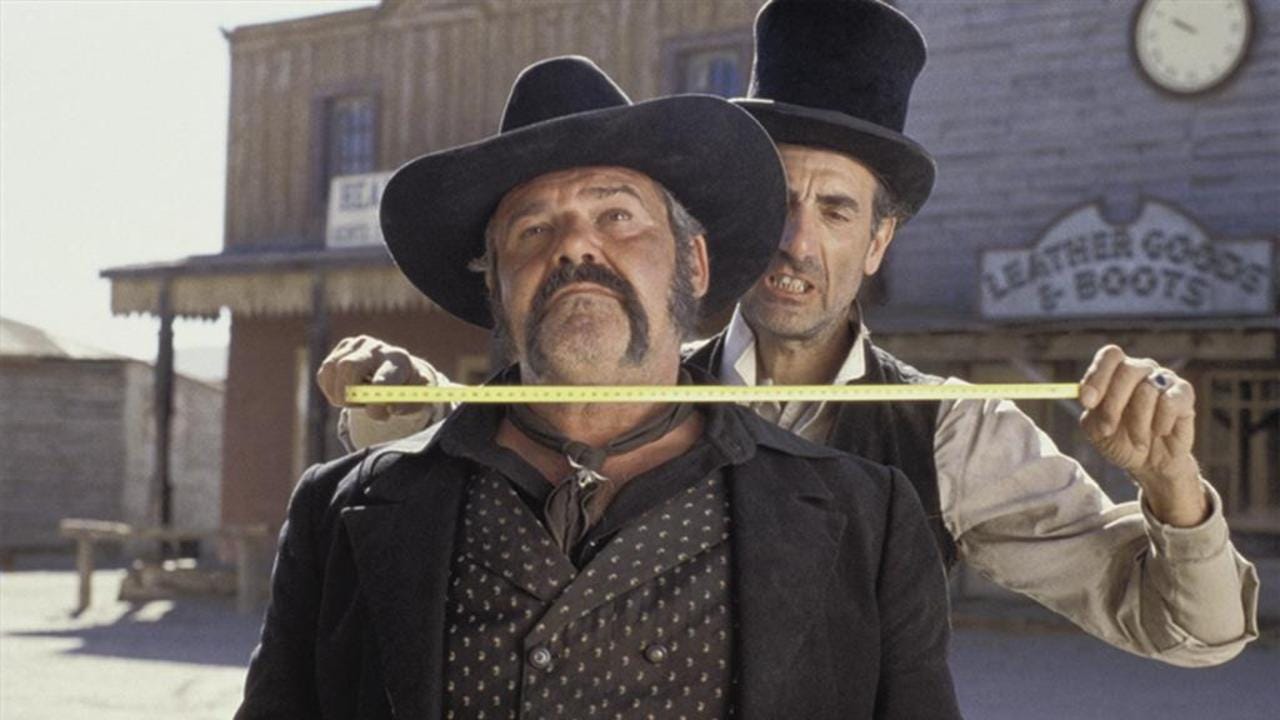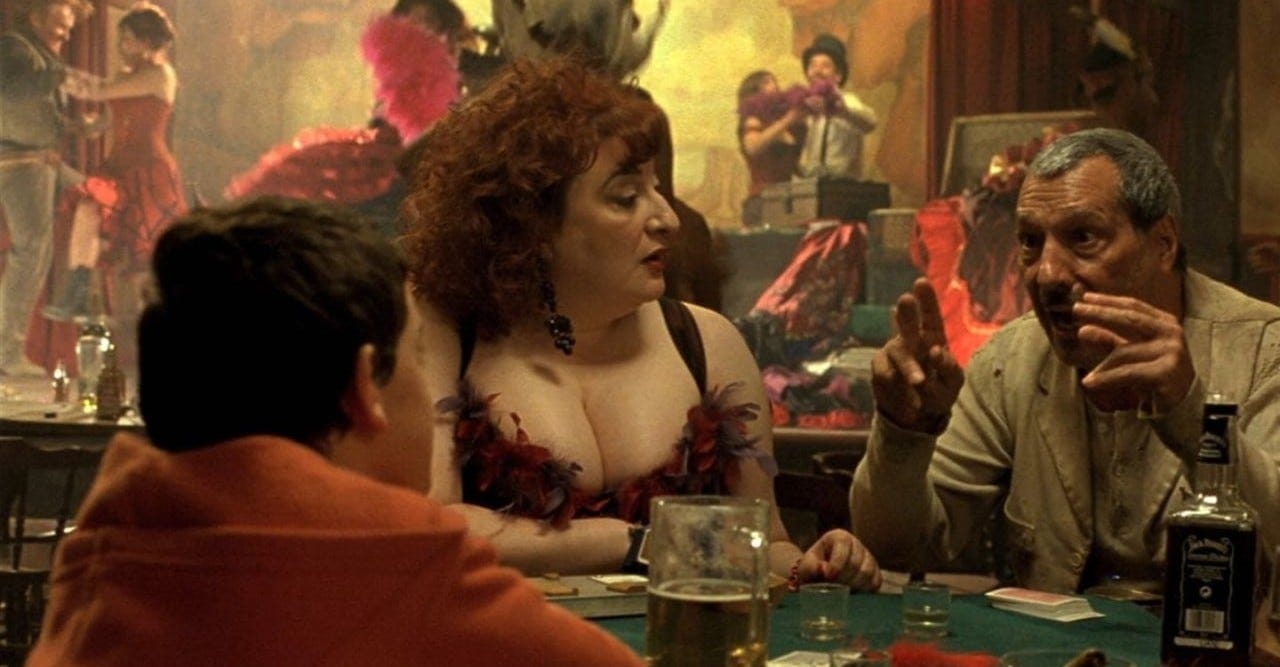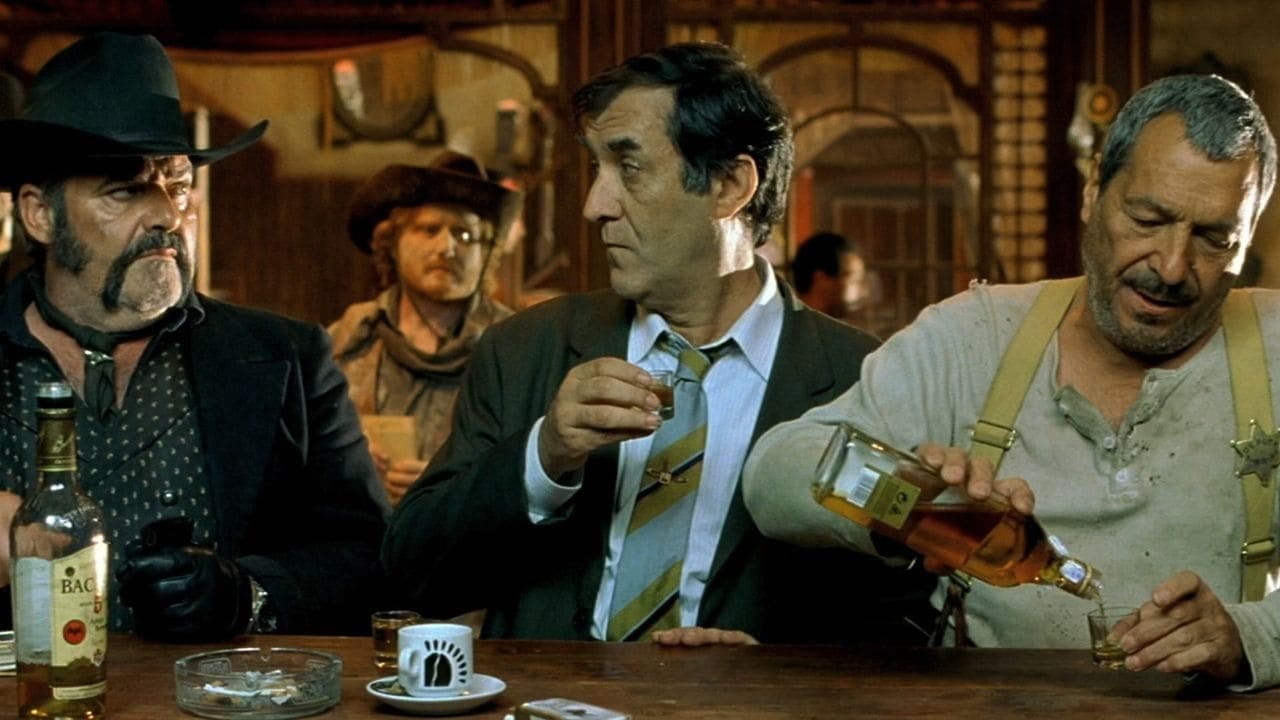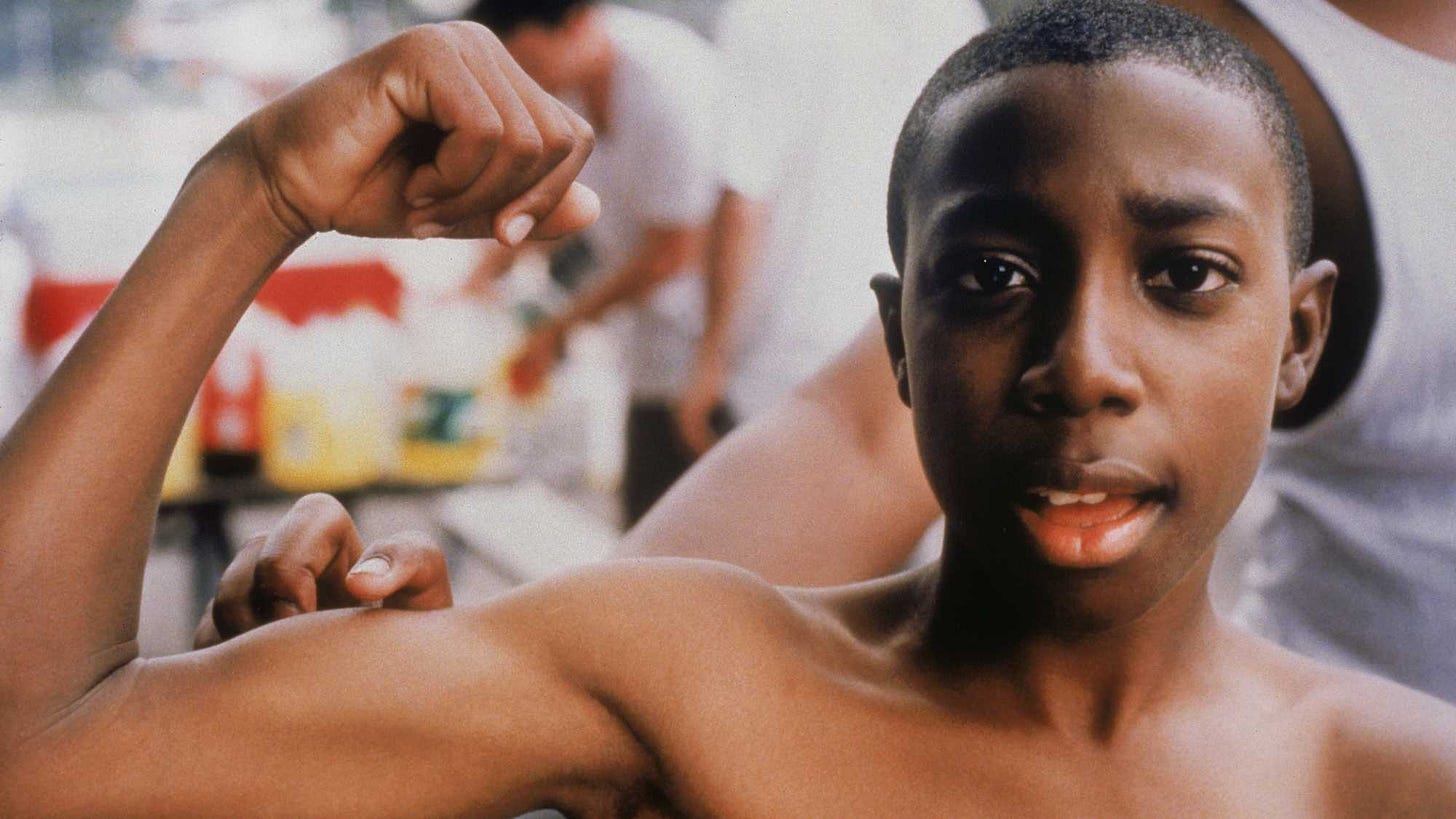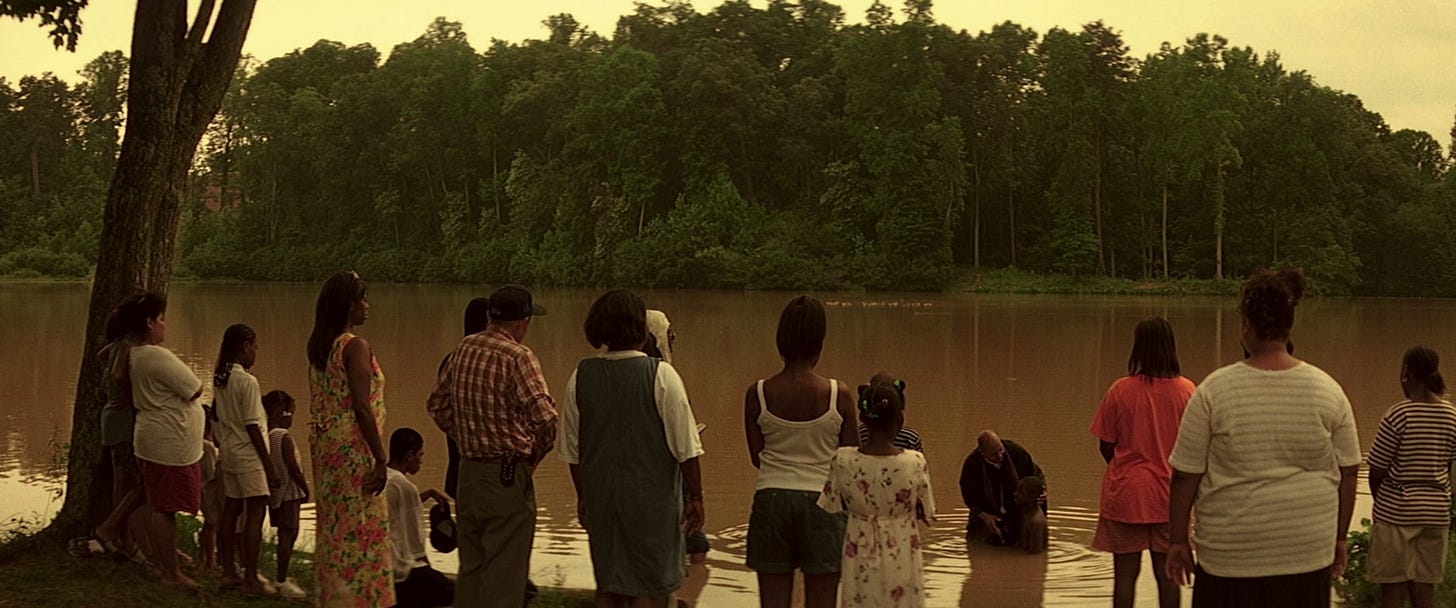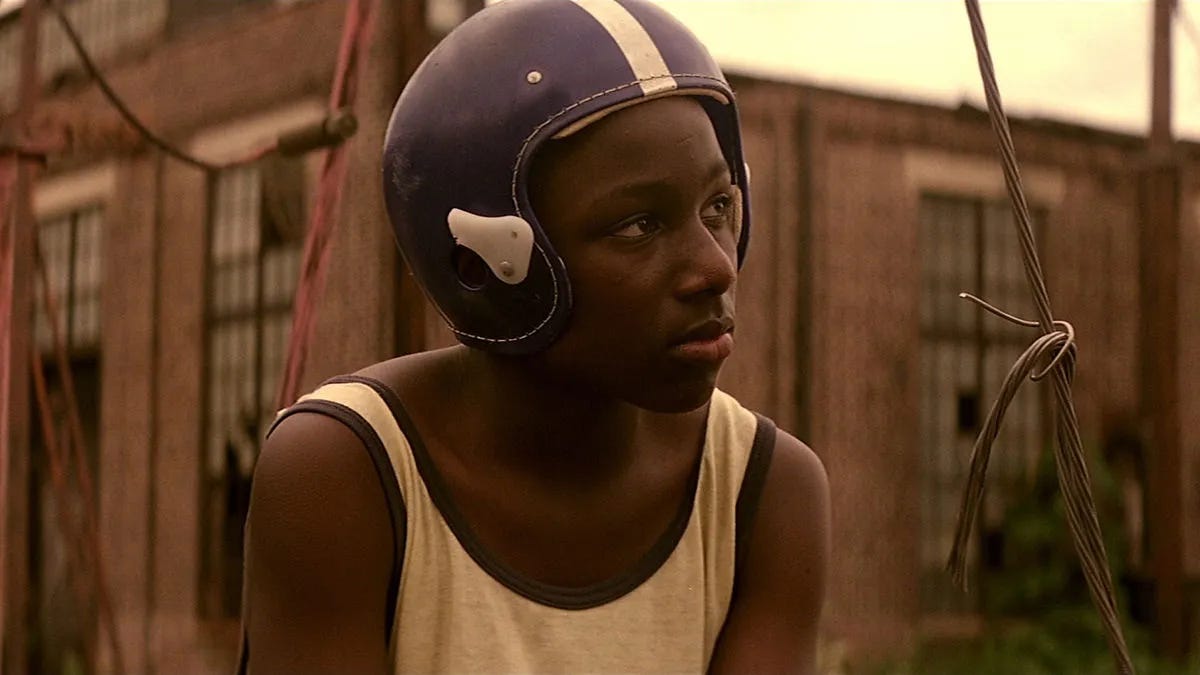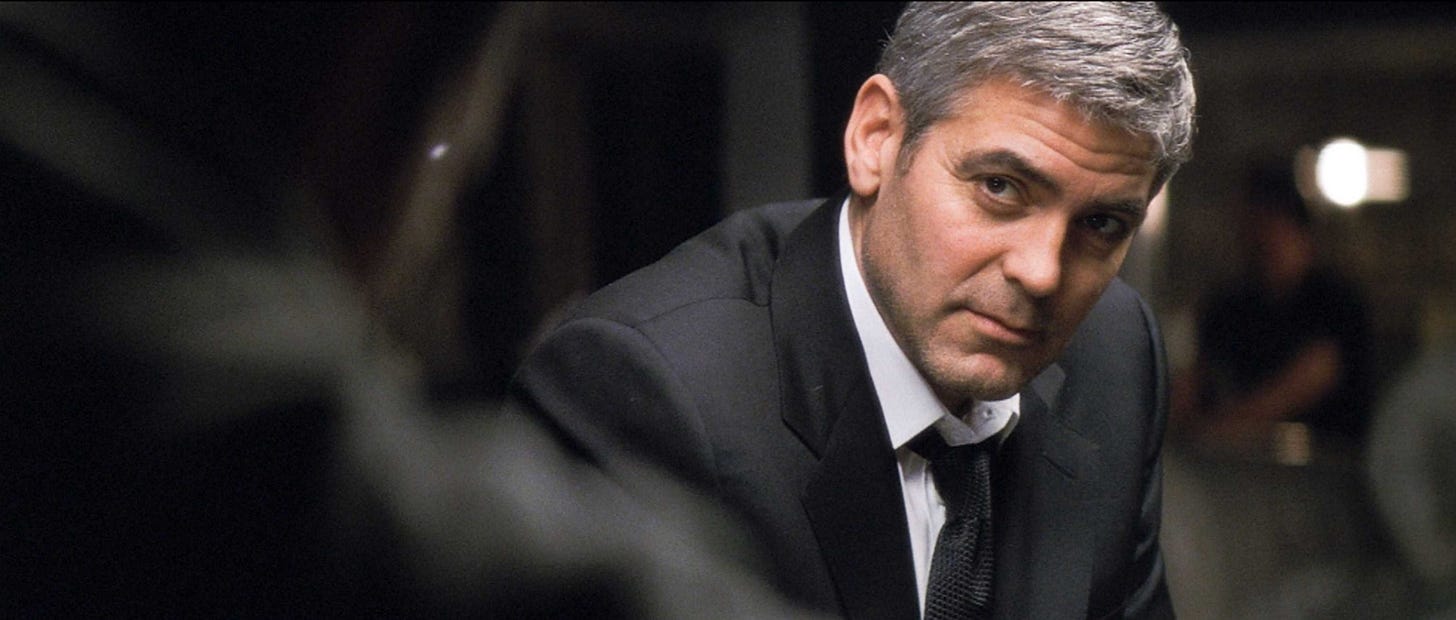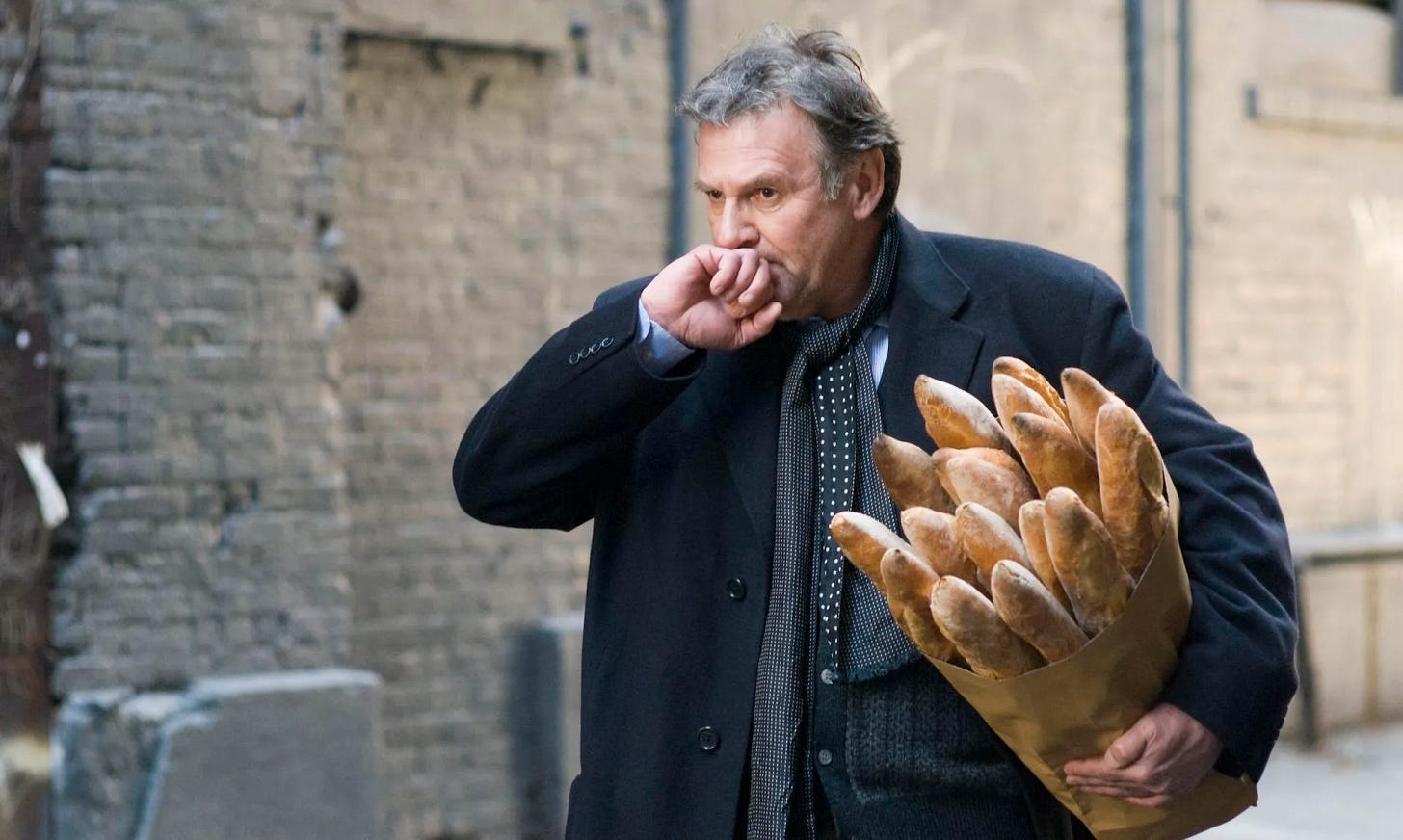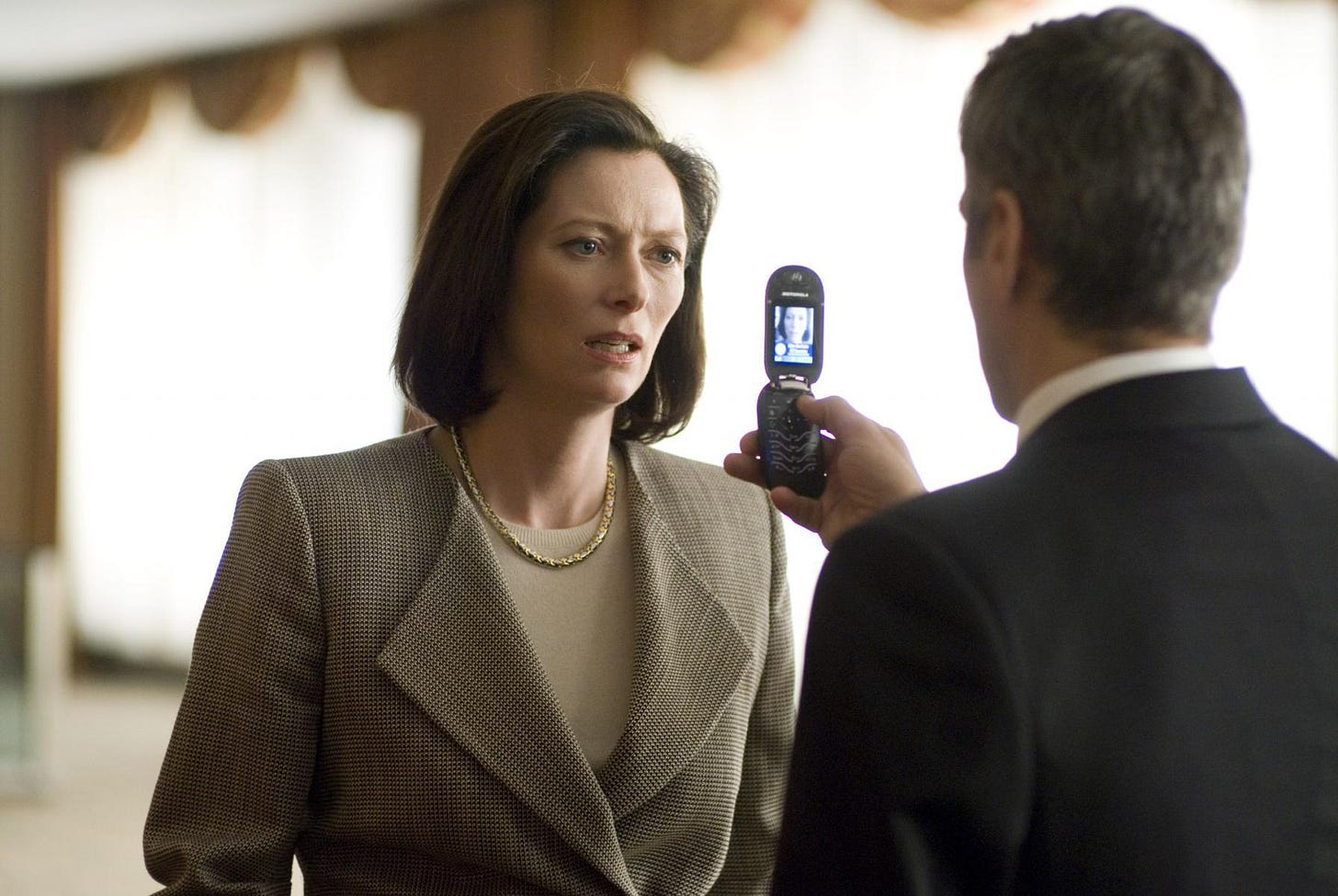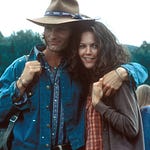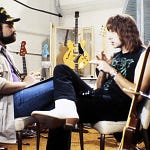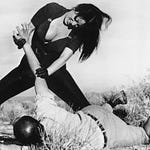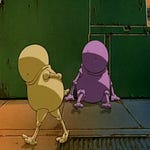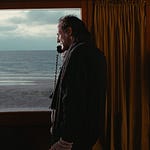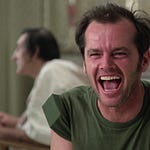Only three more to go.
We are approaching the end of this first season of The Hip Pocket quickly now, and as a result, we’re getting into some more current territory. As we were recording these, we were continually fine-tuning the technical process, and we were also learning each other’s rhythms in conversation. When you’re recording remotely, it can be tricky. It’s not the same as actually being in a room with people, no matter how good something like Zoom has become. Learning how to be comfortable and natural with two people (plus, at some point, guests) while using a tool like this is a trick, and I’m glad we gave ourselves some runway to try to get the hang of it before we started involving other people.
Right now, we’re gearing up to record the back half of season two, and we’re starting to hear the finished episodes from the first half of the season. It is exciting because it feels like it’s working. Podcasts are experiments. You have an idea and you put together a group of people and you try to execute that idea. Sometimes the experiment works and sometimes it doesn’t. When it feels like it’s working, it is so exciting and so satisfying, and when your guests tell you that they feel like it’s working, it’s enormously gratifying.
I look at The Hip Pocket’s format as a game and it’s fun to invite people to play along with us. Some guests respond immediately with their choices. Some guests have pondered the question for weeks. In every case, when they finally land on their choices, they seem excited about it, and every conversation so far has been a treat. I hope you guys feel that way as well, but we’re doing all of this in a sort of vacuum, and by the time you hear the first episode of season two, we’ll have the whole thing recorded, so we won’t really know what you think until well after we’re done with it. I appreciate every bit of feedback we’ve heard so far, and I urge you to rate and review the film on Apple Podcasts or Spotify.
Also, if you’re a Patreon supporter, we’re about to drop a bonus episode that will only ever be available to you guys. Aundria, Craig, and I are going to pick our new additions to the Hip Pocket from 2024, and I can’t wait to compare lists with them. We’ll have that for you just after the start of the new year, and it’ll be the first of our exclusives to say thank you for helping to support the development of this show. If you’re a subscriber here at Formerly Dangerous, you’ll always have access to the new main feed episodes since I’ll publish them here, but the Patreon is a separate thing.
This week’s episode sees us enter the 2000s for the first time, and it’s an eclectic line-up, even by our standards. Enough preamble! Let’s jump right in!
[the Hip Pocket theme plays]
DREW: Hi, everyone. Drew McWeeny here. You may know me from my time at HitFix.com or my earlier work at Ain't It Cool or maybe you read one of my Substack newsletters. Maybe you ended up here because of one of the films I wrote. Whatever the case, welcome to my new podcast, The Hip Pocket.
What does that mean? Well, I think of hip pocket movies as those movies that we carry around with us, the ones that we see that ring some bell or scratch some itch so we file them away. And whenever we're sharing movies with people, these are the movies that we reach for. Sometimes it's a litmus test to see if we're on the same page. Sometimes you just want to show them this thing that means so much to you as a way of expressing that part of yourself. Sometimes it's as simple as this makes me happy, and I hope it makes you happy, too.
So whatever the case, I think you learn a lot about people when you talk about these films and why they matter to somebody. I have hundreds and hundreds of these movies that are like this for me. Movies that have stuck to me for one reason or another over the last thirty years of writing films and writing about them. I am once again joined to discuss these movies by my two friends who I look forward to sharing movies with for years to come.
First up, there's our band leader Craig Ceravolo. Craig, how are you today, sir?
CRAIG: I’m so good today. How are you, sir?
D: I am, I'm very well. I'm very well. I'm excited. I saw a great movie for my birthday this Sunday. I saw Furiosa, which… if you have not seen it yet…
C: I have not.
D: … ruuuuuuuuuuules. Yeah. It is so good.
C: Very excited.
D: Have you have you had a chance yet?
C: No.
D: Oh my god. Dude, if you like Fury Road at all…
C: I… that was the… I, I don't know if I've said this before. I've said it many times. That was one of the first or few movies where immediately when it stopped, I watched it again. Like, I watched it twice in a row. Like, it was that good. Shockingly. So I'm excited to see Furiosa.
D: I’m gonna guess that we will get some equal excitement talking about Furiosa and Fury Road and everything else today from the Ren to my Stimpy, my co-host, the one and only Aundria Parker. Aundria, what's up?
AUNDRIA: Hi. I'm happy to be Ren. I always thought of myself as more of a Stimpy. So I think it’s…
D: Believe me, I'm not calling anybody Stimpy. Not, not when I'm in the room. Good to see you, miss! It's been a little while.
A: It's so good to… it's been a while, guys. I've missed you. I really have.
D: I, I… this decade that we're gonna talk about, the 2000s, I think was the last truly great decade of movies start to finish. I think since then there have certainly been great movies, but I think something about the industry started to curdle and change. One of the reasons I wanted to go decade by decade in the first place was to kind of talk about the way things shifted over time. And, you know, I feel like this decade was the last time that audiences kinda had movies at the center of the cultural conversation.
And I get it, because it was a crazy decade. For those who don't remember twenty years ago, thanks to 911, this was just nonstop turbulence, one end to the other. It's the Iraq war and the Boxing Day tsunami and the economic crash in 2007 and Hurricane Katrina. Truly, anybody born after 2001 has grown up in the shadow of the War on Terror, and every election since then has been a crazy shit show. It feels chaotic nonstop, and I think that's one of the reasons that this decade of movies was so great. It feels like it was both a relief from the chaos and in many ways a reaction to it.
So we're gonna kick things off today, first of all, by talking about the 2000s and where you guys were and, and kinda what you remember about them. I know I was out here, and I believe the 2000s is when I met a guy named Craig Ceravolo.
C: That would be correct. 2005, if I'm not mistaken.
D: Yep. You guys moved in right around then, maybe a little bit earlier, and then we just started…
C: Yeah.
D: … talking to each other because we lived catty-corner in this apartment building.
C: Yeah.
D: And your wife was pregnant. My wife was pregnant. It was like, hey, we're going through something here.
C: What it was, it, it was that… and you were… no, I had just bought a copy of Attack of the Clones at the Blockbuster down the street. Do you remember that Blockbuster?
D: Mmmhmm.
C: And I was walking up and you, you were walking in, and you go, “Oh, nice.” And so we started talking about Star Wars and I had no idea who you were. That's, you know, whatever. Like, I didn't know…
D: That was later. That was much later. That was a conversation when we were walking… we were walking back one night and talking about something. There was a moment where you went, wait a minute…
C: Yeah. I went, “I think you… oh, I read this on, like, Ain't It Cool” or whatever. And you go, “Oh, yeah, I know.” And I went, “Oh, wait a minute.” Yeah. And that's why we've stayed friends for this long. Like, you knew that I wasn't just trying to, you know, suck up to you because you were so, you know, you were Internet royalty…
D: No, I… it was fun, though. You were… you were… having somebody in the building that I could talk movies with, especially when things got really crazy…. and, you know, going through the baby thing at the same time…
C: Yeah.
D: And we went to the…
C: And now our babies are no longer babies. That's how long it's been.
D: I know. I know. Toshi is finished with his first year of college.
C: Frances, too. Finished.
D: Yeah. That's crazy, dude.
C: I know.
D: Yeah. I, I wanna actually… and, Aundria, where were you in the 2000s? What were the 2000s for you?
A: In turmoil, like the rest of the world? I don't know. In the early 2000s, I was in college. I remember walking to class on September 11th and promptly walking out of class.
D: Wow.
A: They sent us all home
C: Wow.
A: Or back to our dorms or whatever. So that was that. And then kinda just banging around, looking for myself, really. The end of the decade was a little better than the beginning, but it was definitely a time of a lot of movie-watching.
D: I always feel like your twenties, for movie watching, is where a lot of your tastes get really shaped because that's when you are 100% in control of I'm watching what I wanna watch. I'm watching anything I wanna watch. There's nobody to say no to me. Like, your… your tastes really define themselves in that decade.
A: Yeah. And also reevaluating things I had seen as a kid that I didn't fully understand or grasp…
C: Mhmm.
A: … and, and getting different meaning from things. You know?
D: Nice. There's a lot of that. Well, it was a… it was a wild decade, and I'm gonna go first today. I'm gonna… the film that we're gonna kick off with is my pick. A… a Spanish comedy-drama by a director who I feel like should be much better known than he is at this point, at least in this country, and I don't think it's ever gonna happen for him. I think he's far enough along in the career that he is who he is, a remarkable cult artist named Álex de la Iglesia, who I like a lot. He released 800 Bullets in 2002. It was one of my favorite films that year. Got an American release just barely, and it has never really gained any kind of reputation here as a result and I, I think that is a damn shame…
[trailer for 800 Bullets plays]
D: For both of you, I would assume 800 Bullets is probably brand-new. Had you guys even heard of it before I picked it for this?
A: Absolutely not. I knew the director, but I had not seen this one.
C: No. I'd not… I'd not seen it. Yeah.
D: So what did you think?
C: Aundria?
A: I’m gonna go first?
C: Yeah.
A: I’ve got… I, you know, I, I, I don't wanna sound like a broken record, right, to say I enjoyed it. But the fact of the matter is you guys happen to pick bangers, and you pick stuff that I might not have… that I probably wouldn't have seen normally. So, yeah, I enjoyed it. I feel like this and Craig's pick for the decade as well are both kind of movies that you, you just go on the journey with. You don't really know where it's going. I don't know if it's because I don't have the cultural knowledge of Spain and the spaghetti westerns and that whole thing… so a lot of it was very fresh and new to me. It's also got a great family drama element to it. And I like De La Iglesia. I think his movies are weird in the best way possible.
D: Oh, yeah.
A: They're very offbeat. He does strange things, and he's not afraid to go a little further than you think he's gonna go. So I dug it. I, I had a really good time watching it.
D: It's got… I… when I first heard the description of this movie, that it is set in Spain, in one of the towns that was built for Spaghetti Westerns where they shot a bunch of these movies… and not the big ones, not The Good The Bad and The Ugly. They shot the little stuff, the stuff that you don't remember anymore. I love the fake titles that they used in the movie. There's one of them that made me laugh really hard. What was it? It was Two Rifles and A Grave. I thought it was fantastic, and then I'll Go Kill Him And Come Back. Perfect. It sounds poorly translated.
C: Yeah.
D: It sounds like that's not exactly the way that phrase would work in English. I love it. Two Bullets for Charlie. Like, all the movies they worked on sound incredible…
C: Yeah. It's great.
D: … and I love that this town has just been standing the entire time, and all the stuntmen just never wanted to give it up. And so they keep this Western show going on the sets that were built for these movies, and a few people a day, if they're lucky, come and see them perform. Some days, nobody comes and so they don't even bother. But the rest of the time, they basically live in this town. They essentially live the roles that they have chosen to play in this Renaissance Fair/Western town thing that they do. And I, I just love that world. Even if there was no other story, I would want to see a movie set there. And then there's this Spielberg story grafted on top of it about a kid who didn't know his dad, who was a stuntman who died there, and so he comes… he runs away from home. He comes and he meets his grandpa who's still there, and they have these adventures together. And the adventures are so much rougher than they would be in an American movie.
C: Oh my god.
D: Like, when he’s…
C: There's a lot of things happening. Yeah.
D: … when he wakes up in bed and there is the completely naked woman in bed next to him, and he's just annoyed by it… awesome. It's awesome.
C: Was it awesome? Because I went, Drew, what are you making me watch here?
D: Oh, it’s… here's the thing, though. That's honestly… I feel like it is the best running away and joining the circus movie I've seen.
C: Oh, absolutely.
D: Kind of about how that feels when you're young and somebody works in the entertainment... and I love that moment where they go to the, the farm where people are picking fruit and vegetables and they say, Anybody wanna work in show business? And there's that cut to, like, a hundred of them following up the hill while he's like… everybody wants to work in show business.
C: Right.
D: And it's not really, but it's close enough. And I, I feel like that's something that the movie taps beautiful… beautifully. I love the kid and his grandfather, though. I think their relationship is hilarious. I think the grandfather, played by Luis… no, not Luis Castro… Sancho Gracia. He is terrific in this movie. And, yeah, it's just one of those films where I, I think it's so clever… all the way… if it was just the relationship between him and his grandfather, I would love that. And then the entire twist at the end about them having to stand up for their town and basically they've got 800 bullets with which to do it. That's such a great title and hook and narrative. It’s… I love this little movie, man.
C: It looks… it’s… it feels dangerous. Like it was, like… like it was, like, a really dangerous movie to make.
D: Yeah, well… and I think that's part of what's great about it is it… there were… I can see an American version of this. It would be toothless.
C: Mhmm.
D: It would… everything that I like about it, they would sand off of it. And, yes, there's stuff in this that is wild and that feels really dangerous and a little bit like the guardrails are off, but I like that.
C: Oh, yeah.
D: I kinda love that he goes for that and that the, the world of the Wild West show that his grandfather lives in is so seductive through a kid's eyes… as seen the way he sees it. It’s, it's a lovely sort of fantasy he gets to go and live in. I love that his mom is Carmen Maura, who is such a huge part of the Almodovar stable of actors.
C: Mhmm.
D: And De La Iglesia got his break from Almodovar… Almodovar. And I feel like in a lot of ways, there's some similarities between them. They both love melodrama, but they both love to mix, like, a lot of tones into one film, and they can ride these tones in ways that you would not expect. And I think they both honestly sometimes feel like they make dangerous movies because you don't know where they're gonna go or how far they'll go. Or it just feels like the the standards are completely culturally different than America. And so even if they have very Hollywood rhythms to their storytelling, and they do. They both are, I think, soaked in American movies. You know, they both grew up on, like, ‘50s films and ‘60s films, but they have a European edge to them. So it's kind of the best of both of those things.
C: Yeah. And I couldn't believe how young he was. Like, I just looked him up, and he’s, he's only… he's 58 now. So he was in his thirties when he made this. And it's such a… the, the, the pace of it is really… I don't know. It, it felt, you know, like a… it, it… Tarantino-esque, you know? It’s, it's fast. It’s, it's funny. And it’s, it's wild. And I really… I really love that about it. It does have this, like like you said, this very European sensibility about it. Very Spanish, really. Not just Europe.
D: Yeah.
C: Spanish.
D: Yeah. It's, it is, I love the use of English in the film. I love when they're doing the Wild West stunt show. Everything's in English, and it’s… I, I love all of the dialogue in the Wild West show.
[a clip from 800 Bullets plays]
D: It's charming. And I find I think he's one of the… he's exceptionally good at comedies. I love De La Iglesia when he's funny. He is super weird sometimes. If you've never seen The Day of the Beast from ’95, that's a film of his that is bananas. Right.
A: Craaaaaazy. And Perdita Durango, that's him too. Right?
D: That movie is… Perdita Durango is the best David Lynch film that David Lynch didn't make.
C: Oh, wow. Okay.
A: Damn.
D: Yeah. It really feels like somebody went, I love Twin Peaks, too, David. Please can I play in your world a little bit? And it's got that vibe and everything. I… but then I love some of his… I, I really think he's made… I think Furpect Crime, or… which is supposed to be a weird flip of Perfect… I think that one's hilarious. I think he's a guy who I'm really surprised never had a bigger break into the American market. I kept waiting for that movie that some company would pick up and get behind and really break and I just don't think it's happened. The closest is he's got a show on HBO right now…
C: I was gonna ask. Yeah.
D: … called 30 Coins, which is a horror series in which there are these 30 possessed supernatural coins that the church is trying to hunt down, and each one of them represents, like, a different demon and evil. And that show is crazy. Like, every episode of that is so far past what you think HBO is gonna do with a horror show, and it's pure Spanish Catholic mayhem. It's awesome.
C: That sounds great.
A: I’m sold. Yeah. I'm totally sold.
D: Yeah. I love the… I love the use of Almeria, the, the part of Spain where they shot this, because that is like the American West as portrayed by Europe, and I kinda love that it… they do such a good job of it here. And he speaks fluent American movies. So when they're doing the Western stuff, it really feels like a Hollywood western. He does it very well. The music is great.
[some of the 800 Bullets score plays]
D: Craig, we're gonna do your film next.
C: Okay.
D: And I am really glad that I went back to watch this one again. I saw it when it first came out, and then I saw it again almost immediately when Roger Ebert invited me to the Overlooked Film Festival, in like… 2002 or 2001. I was a speaker. And then one of the movies that he programmed was David Gordon Green's George Washington. And he invited the kids from the movie to come and speak as well. And so I ended up having several meals with the kids. And I was just taken with the film and with the crew and with the story about the making of it. And I look back at it now, and it is such a weird anomaly in David Gordon Green's career. I can't believe this is the dude who has spent the last decade making weird ass Halloween sequels.
C: I know. That's good. I love it.
D: It blows my mind. Please, let's talk about why you picked George Washington.
[clip from George Washington plays]
C: Um, I… he… this is the most Terrence Malick, non-Terrence Malick movie. And it's almost…
D: Yep.
C: … and I think he… and you could tell me more because I, I wanna hear what you have done. I had no… I don't think I ever knew that, about you spending that much time with them. I would love… I wanna talk, I wanna hear about that. David Gordon Green was on the tertiary of the Athens, Georgia music scene. We would… he would come down and hang out. And Craig Zobel, like, that whole… like, when we were in Athens all together. I… and they went off and made movies. And I even remember once when I was moving from Athens, Georgia to… to LA in ’97, Craig Zobel said, why are you moving to Los Angeles? Like, it was… everyone was so anti-LA. Like, you know, make your art where you are. Right? And, um… I… if he… I, I was here when he… when they, when it was released, and I, I was just blown away by how beautiful this… out of the gate, he made this film. The kids are really natural. And I'm a… I'm a huge Days of Heaven fan. I mean… and that’s… I feel like that's the touchstone for this movie. The, the voice over, you know, the kids that are very wordy in the narration… like, I love that. But they're also very natural, and there’s… had to be a lot of improv that had went on here.
D: Yeah.
C: I… but you're right. And then he did All The Real Girls after this, and then… and then I stopped paying attention. And then it was Undertow with Jamie Bell. Right? And then… and then it was Pineapple Express, which I've never seen. And then that’s…
D: Snow Angels. Snow Angels was his big Hollywood jump.
C: Yeah.
D: Because that was the one that was a studio-level movie with Kate Beckinsale kind of as a new movie star. That was his jump into studio films, and it made zero noise.
C: That's right. I forgot about that. And then… and then, then Pineapple Express. Right?
D: Yep.
C: No. Oh, yeah. And then, and then he… then he goes off and does the… then people know David Gordon Green, like you said, as the guy that redid Halloween or whatever. Right? I mean, that’s… that’s… and I don't really particularly care. Sorry, Dave, if you're listening. It's whatever. But I don't really care for those because I thought his voice was so strong early in, in, in his career. But I also liked… but I remember you and I talking about… what’s, what's the, the, the parody of the ‘80s…
D: Your Highness.
C: Your Highness. I remember us, you and I, talking about that and getting…
D: I went to… I went to Ireland for that one.
C: Yeah.
D: No. I, I mean, the first time I met David after the Overlook… the Overlooked Film Festival because I, I met the kids and I met him there, and that was 2001, I think…
C: Yeah.
D: … and then I saw him the next time on the set of Pineapple, and I had been invited by Seth and Evan to come to the set. And when I got to the set, it was… they were shooting the car chase with Rosie Perez where they, uh, they're driving across the parking lot chasing her…
C: Okay.
D: … and they're doing the flip stunt. Right as I walk up, they're getting ready to flip a car. And as I'm walking up, Seth starts laughing. He goes, “Check it out.” And David Gordon Green turns around. He's got a big smile on his face, and he's, like, doing, like… he's so excited about something. He turns back around and Seth goes, “He looks like he just got his first hand job.” He's freaking out at me. “Look at that guy.” And it was like…
C: Yeah. He… I mean…
D: The toys, yeah. The, the toys were so different…
C: Yeah.
D: It was such a… like, he was changing as a filmmaker basically over the course of making that film. He was reinventing himself.
C: And, and I think for me, he was the first person that I knew that made it. Like, oh, you can actually do this. And he did it amazingly well. David Wingo does the music for it. He was a… he's in a… he did it. He has an amazing band. I don't even know if he still plays. It's called Ullapadria that is just one of my favorite musical things. He's gone on to do amazing stuff. But this is when everyone was cutting their teeth in the early 2000s, and this is the one I was like, oh, well, I mean, okay. Yeah. We all love Terrence Malick. And I think he actually… Malick produced Undertow, if I'm not mistaken.
D: Yeah. Yeah.
C: And so it's not… it’s, it's more of an homage really. And, but, I just thought it was, like, the perfect movie for me at the time because I just loved Mal… you know, everyone loves Malick. You know, you go, oh, Malick. But, you know, it’s… it… there wasn't a lot of Malick to choose from at this point. Like, he wasn't back in his… like, so, it was, like, three or four movies, right? So this is, like, oh, this is like another Malick movie I can watch. But that doesn’t… I don't want to dismiss his talent because it is a beautiful movie. Paul Schreidarrrghtschneider… of Parks… Parks and Rec fame. Yeah. You know, but the kids are great. It's a beautiful story. I just… I, I love it. I've seen it a million times.
D: Well, not knowing what it was ahead of time, Aundria, what was your reaction to it? Because this is one of those that, if you don't know anything going in, what a sneaky little thing to drop on somebody.
A: I didn't know the story, but I, I was kind of aware of David Gordon Green's, like, phases as a director. Right? Because I'd seen Undertow, and I think I saw All The Real Girls. So he was this kind of very small, intimate, indie dude who was then making stoner comedies for Hollywood. And now he's transitioned into making… you know, acting here and there. He was in that Bones and All film. And now, the Hall… the Halloween pics. So what crazy stages and what distinct stages, and how is he killing every single level. Right? I mean, just… I'll, I won't say anything about the Halloween films, but still successful, obviously…
D: Yeah.
A: … so getting back to his earlier stuff, this movie is so peaceful and authentic. It feels like a slice-of-life documentary of just following kids around in the South.
C: Mhmm.
A: Right? You almost… I almost forget that I'm watching a movie that's got a script and a story and a direction because it's just lazy in the best way. They're… you're just following them, and then, because of my nature, my cynical nature, I'm like, oh, god, there's gotta be another shoe that's gonna drop. There’s… this can't be… and of course, there is. And then the fallout of that is just, like, so… you've spent the whole movie watching these children and learning these children and seeing them interact, and then all of a sudden they're forced to be very much not children and make very adult decisions with something. And it's very jarring. It was… it's a beautiful film. It is so Terrence Malick.
C: Yeah.
A: Yeah. I, I really enjoyed it. I’m, I'm very glad we got a chance to see it.
D: Narratively, it kinda reminds me of River's Edge in terms of the idea that there's a thing that happens that you're not equipped to process.
C: Right.
D: You just don't. And they process it the way children would. Not with adult decisions, not with responsible choices, but just… you respond from panic and fear and everything. And it’s… I love the way this film… I love the world of this film and that young cast… hanging out with them, you got a sense of how sharp they were and how they were playing characters. It was not just David put them in front of the camera and let them be themselves. They were very aware of the pleasure of creating a character and then seeing what the character would do. And so they had a real sense of play as a group when they were at the film festival, but they were totally different. They were totally different kids than they were in the film. And it was, it was a nice reminder that even though it feels documentary, even though it feels very real and very observed, he did a remarkable job directing those kids. He got something real… he created like a little theater company with them and let them all inhabit these characters and build them and live in them for a little while and then rolled film. And I think the result is a movie that that still stands up as one of the best things he's done.
[clip from George Washington plays]
D: And I miss this David Gordon Green. I'm not… you know, it, it is tough sometimes because I… as much as I've enjoyed watching David's career progress, and I, I think the high point of his later career by far is his television work with Jody Hill and Danny McBride…
C: Yeah. I forgot to mention all of that…
D: I think Eastbound and Down… I think Eastbound and Down, Vice-Principals, and especially The Righteous Gemstones… I think those are…
C: Yeah.
D: … masterworks. Those are masterworks, and they are some of the best shows about the American South, the modern American South that anybody has ever put… they get it.
C: They get it.
D: Like, they… and they are doing things that nobody else is even thinking to try. Righteous Gemstones destroys me, and there is stuff that David does on that show that is like, oh, there's the guy I love. There's the guy who is a lunatic, but also has this very keen observational eye for human behavior.
C: Yeah.
D: The thing that makes him laugh the hardest, and this is why I think his shift to comedy isn't so weird, is nuanced human behavior. The thing that makes him laugh the hardest is just little things people do that are real. Most of Pineapple Express, most of what makes me laugh in that film is tiny little things between Seth and James Franco or between Danny McBride and James Franco or Danny McBride and Seth. Their dynamic is incredible in the film. And when I watched it with the boys, I had to explain an entire dynamic to them. I was like you don't even understand that the whole point of this movie is when you wanted to go buy weed, you had to go see the, the weed dealer and he would invariably be a guy you didn't wanna hang out with but he wanted you to hang out longer and so that's what this movie is about. Just that alone, the fact that that was the source of an entire comedy for him is… that I really admire his brain and his character sense, and I think it's on display right away in this film. I think he loves these kids. I don't think… and I think for a movie by a 25-year-old white guy…
C: Mhmm.
D: … it is a remarkably sensitive film, racially, in terms of how he directed these kids, what the dynamics were between him as a director and them as performers. Like, I think he really displayed a very adult sensibility right up front, which is why it's interesting that he's regressed to become more of an adolescent as a… as an adult. So he's a fascinating filmmaker, man. And this is definitely one that…
C: I still love everything he does.
A: I forgot all about the TV work. And the TV work is probably what I know best and love. Oh my god. I love Pineapple Express.
D: It’s so rewatchable.
A: And Vice-Principals. Yes. I'm also very, like… I came around late on Danny McBride, and now I'm just, like, completely enamored with him, and I just love every choice he makes and everything.
D: Well, All The Real Girls. Like, his first…
A: Yeah.
D: … his performance there as Bust-Ass was the moment where I was like, who's that guy?
C: Yeah.
D: Who's that dude?
C: Well, you know, that guy's great. Michael Tully, who went on to do some other directing…
D: I know Michael very well.
Ç: Yeah. He sent me a video when all this was going on. He goes, this guy's going to be a star. And I'm like, what are you even talking about? So it was, it was like a little short of Danny McBride as, like, a traveling salesman in a hotel room. And he's just having this monologue. I'm like, who is this guy? He goes, just wait. You're gonna know who…
D: I remember on this, on the set of Superbad, I remember they had a tape of The Foot Fist Way…
C: Yeah.
D: … which had not even played festivals yet, but it was being passed around Comedy Hollywood, and Will Ferrell had just given it to Shauna Robertson on that set, and she made copies for everybody. And so everybody had seen Foot Fist Way, and everybody was like This dude…he's insane. They could not get over that.
A: He's so different. His energy is different. His whole… he's not being anybody but himself in whatever role he is. There's no… there's no… yeah. There's no one else who does his… what he does.
D: He is a completely original American character…
A: Yes.
D: … and utterly American.
C: Hey, just… before we move on, I just wanna wrap up my thing with George Washington is… I wanted to also say it seems like the last film where it's a pre-cell phone kid experience. Like a childhood without cell phones, without technology. And it felt very much like I remember summers in the South being, even though these are… it was set in the modern time. Well, in 2000… in 2000 anyway.
D: Yeah.
C: … but it, it, it… that, that's also what I connected with is, I know those kids. I would do the things that you should not be doing that those kids would do, like wandering around an abandoned zoo…
D: 100%.
C: … like, I would, we would, we would…
A: Go play in the construction site.
C: … yeah. Yeah. I would do that. Like, I’m… we would, we would travel, like, I would do that. Like, I… we would, we would travel, like, a a quarter-mile drainage pipe to go up into a strip mine field where we would climb on rusty old mining equipment. Like, this is the stuff you did, folks, before… before the Internet.
D: Yeah.
C: Before cell phones.
D: I, I, I'm really… revisiting it, I forgot how much I loved it. Like, it's an easy film to let it fade, but when you go back and you look at it, you realize, man, it feels very contemporary. It feels… I mean, it is still as sharp as anything he's done.
[clip from George Washington plays]
D: Aundria, your movie is our last one this week, and I held it for last because I think this is probably the one that we're gonna have the most to say about. I think this is a deeply underrated film even though it was nominated for seven Academy Awards and it won one of them, for God's sake. It came out in one of the best film years of the decade, which is the problem. And as a result, I think it got overshadowed by some other truly great movies. It seems unfair, but I believe that time is gonna be very kind to Tony Gilroy's remarkable Michael Clayton.
[trailer for Michael Clayton plays]
D: Why this one? What was it about this one that made you want to pick it?
A: I think I saw this maybe two years ago for the first time. So I was super late to the Michael Clayton party. And I, I was like, how how did it take me this long to watch this movie? Why are we not talking about this movie now? Like, and it's so quintessentially a grown-up movie, right? There's a few breaks of humor, but it is a drama. It is a political thriller. It moves at a breakneck pace. It doesn't let up. Every performance is, you know, right down to the bone. It is… I was just so pleasantly surprised. I don't know what I thought it was before I had seen it, but I can't believe I waited so long. And now I'm just like, everybody has to watch this. Why haven't you seen it yet? So that's why I picked it. It’s, it's that good. It's just… I've seen it probably four times since I first saw it because it’s… oh, god. We gotta watch that scene again. You know what I mean? It's just killer. I loved it. I love it.
D: It was great because my girlfriend had not seen it when it came out, and I was gonna go put it on. She was walking through the room as Tom Wilkinson's talking in the opening and she stopped to listen. And she just kinda cocked her head, and she goes, what is this? And I said it's a movie called Michael Clayton with George Clooney. Did you see it when it came out? She's like, nope. I said, you should sit down. So she sat down and she didn't move until it was over. Just it pulled her right in and…
A: It grabs you.
D: It is and what you said about being grown up, it's all grown-up stakes. It’s…
A: Yep.
D: … there's nothing in this movie that is dumbed down for you. If you miss it, the movie's gonna keep going. You better catch it.
A: Yeah.
D: It is a… it is a dense, smart, adult screenplay, and, and truly delightful because when it finally pulls everything together, it does it in a scene that has taken my breath away every time I've watched it. It's taken my breath away not just because I think it's Clooney's finest hour on film, but because when you watch it land on Tilda Swinton, it's delicious. Like it is… it is the most satisfying thing.
C: Yeah. Yeah.
D: This movie has one of those scripts where, when they finally drop both shoes at the end, you go, alright, that's all I needed. That was it. Thanks. That was delicious. I'm done. That was perfect.
A: It's a meal. It's a whole meal.
D: A beautiful sense of justice, and justice served by a guy who never ever becomes the good guy. I think his final speech is heartbreaking. Not only because of what he's saying and you know he means it about himself, but because he knows his brother's listening. He's telling his brother as much as he's telling himself that, no, I am compromised. I am garbage. I am easily bought. I am corrupt. I'm a joke, and that's why it's stupid that you're trying to kill me. And it's such a beautiful moment.
[an absolutely awesome clip from Michael Clayton plays]
D: I don't think anybody's used Clooney better. I think Out of Sight is my other favorite Clooney performance, where I think he’s…
C: Yes. Yes.
D: … spot-on perfectly used.
C: Yes.
D: But this one gets me. The moral compromise of this…
A: It's clean Clooney and dirty Clooney, right? It's clean Clooney in whatever sense of those words you wanna use because he's clean in this, but damn, he's dirty. And…
D: … yeah, and I feel like… I feel like it’s, it's an indictment of a system where a guy like Michael Clayton not only has a place, but he has a prosperous place. Where a guy like him is really valuable. That is a fucked up system and knowing how fucked up it is if you’re Michael Clayton is moral rot. It's just fascinating to watch him wrestle with. Man, I love every performance in the movie, too. I think Wilkinson is…
C: Oh my god.
D: He is all-timer good.
A: Yeah. Forget it.
D: His scene with him with the bread... I am fascinated by what he's gonna do with all that bread. It's all I can think about during that scene every time is that’s so much bread.
C: It looked good though. I, I, I wanted that.
A: I get the impulse.
D: Yeah. I mean, I get it. Yeah. It must have smelled great, but wow. That's a lot of bread. Yeah. Yeah. I love Tilda Swinton in it. I think she's great. I, I'm really… I, it’s, it's one of those movies with a preposterously good cast and I… okay. Sydney Pollock…
C: Oh, God.
D: … is one of my very favorite character actors. And as much as I think he's a good filmmaker… I love Tootsie, I like many of his movies… I think as a character actor, he was the very best of the very best. I don't think there's a single scene that Sydney Pollack ever played on film that is anything less than totally honest. And in this movie, he's great. He is the voice of corrupted reason. Like, he makes…
A: Just get it done.
D: Yeah. It’s… he wants to be clean handed, and he is, as much as you can be in that world. I love… when my girlfriend was watching the movie and Michael O'Keefe showed up, she was like, whoooo… that looks… and I just went, Noonan. And she went, oh, god. Okay. It's like, if you don’t… if you haven't seen Michael O'Keefe in a while, it’s, it's wild.
C: Yeah. Absolutely.
D: And he's great in this.
A: And Merritt Weaver, who I want in every movie all the time because I can never get enough of her…
D: She breaks my heart in this movie, man.
A: Yeah. She’s, oh…
D: She's so good. And she… and…
A: She's lovely.
D: … when she finally reveals, like, what's been going on with Wilkinson and, and what she does or doesn't know and what… it's terrific. I, I really… I understand all seven of the nominations for this movie. I'm surprised Swinton was the win. I think it was just what she was up against. I think she just… there was a split vote and she won, but it's wild to me because I think Wilkinson is the…
C: Oh, he's the one. Yeah.
D: Yeah. He's the one that I would probably give an award to if I was... if somebody said, gun to your head, somebody from this movie gets an Oscar… like, it's Wilkinson, right? Like, that's the… that's the… but in 2007, we had There Will Be Blood. We had No Country for Old Men. We had so many giant movies.
C: Oh, god. Okay. Yeah.
D: And it was… it’s, it’s… I think it's because this movie is somewhat subtle and a little quieter in how it does what it does than those movies. Those movies are big theatrical operatic statements. And I feel like this one is just this tense little thing.
A: And it doesn’t hold your hand. It, it's going for the ride whether you're on board or not, so you're just gotta keep up.
D: Yeah. I, it… I also think it's wild that so far, this is Tony Gilroy's best anything by, like, a wide margin. And as much as I like the commercial work he does, the Bourne films or Andor, the Star Wars…
C: Andor! Come on. Come on.
D: I think Andor was great.
C: Oh, it's amazing. But there's a definite thread between these two that…
D: Oh, absolutely. He's very aware of class and power and the way it's used, and I think Andor is maybe the closest thing to Michael Clayton. That's weird.
C: Isn't that weird to say?
D: But it’s maybe the closest thing he's done. But he feels like a guy who should have… immediately, studios should have been bending over backwards to let him just cash blank checks. Just make this kind of movie over and over. I really don't get it. I don't get why that hasn't happened. I don't get why he isn't more of a tool for the studios. I mean, this is how you make adult movies. This is the model that you should be following. It's not a giant budget movie.
C: No.
D: But, man, it feels like fireworks the whole way through. It blows my mind, man. But, yeah, this is a… this is a film that I, I do feel like it's building over time. I feel like the audience is growing. It feels like memeification, as weird as that is, has kind of helped somewhat. As strange as it is to say, I think in our age, if you go viral in the form of memes or GIFs or whatever, it kind of helps. It can help a movie or an actor stay… I think it… honestly, I think it helped Emma Stone. I think there was a big period of time where Emma Stone didn't really have a hit film for a while, but she was in every GIF on the Internet with her rolling her eyes or doing like… so I feel like…
A: Yeah. Yeah.
D: … I, I feel like, for a lot of younger audiences, that's how films start to soak in now. And Michael Clayton certainly…
C: What was the… what's the meme from this? I'm sorry if I’m…
D: Oh, no. It's, there's, “I'm the guy you”… I'm not the guy you kill, I'm the guy you buy, I've seen repeatedly. And I've… just images of Wilkinson with the bread and things like that…
C: Oh, yeah. Yeah. Okay. Yep.
D: There are bits from the film that have kind of crept out, out of context and sort of had to live on their own. Tilda Swinton with the, the pit sweat and stuff…
C: (laughing) Yeah.
D: It’s… which… that's a great detail at the beginning. She is, she is such a gross little thing in this movie and such a nervous weird little wreck. And I think she is …
A: That's still the Swinton all the time, I think. With love.
D: She's ego-free as a performer. There is no ego about the way she plays a character. So she's not afraid to let a character be as crazy as Snowpiercer or as unflattering as this. And man, when she crumbles at the end and when she’s, like, trying to… she's got, like, that forty seconds where she's trying to figure out how to get out of this thing and she realizes… she just crumbles. As a human being, like, you watch everything crumble. There is no strength left.
C: I mean, that is that is, that is the performance of… and you're right, it's just… it's just forty seconds. It's the very end of the movie, to watch someone so un… they cannot figure out how to save this and they know they're royally fucked. It's amazing to watch. And she does it with a, you know… amazing job, obviously…
D: Yep.
C: … by that crazy space alien lady that I love so much.
A: That's the thing, right? Like, I like seeing Tilda Swinton play a normie, for lack of a word.
D: Yep.
A: Because she is so damn good at, like, these crazy, ethereal characters. And I'm like, look at her just being… I mean, you know, we have this and We Need To Talk About Kevin and there's obviously, she's played kind of more grounded roles… but she's just so damn… she's so normal in this and she's absolutely… electric…
C: Yeah, there's a vulnerability to her that's really interesting in this thing. Yeah. That she's really…
D: … and especially in a, in a male world where it is all bravado and bluster and I'll kill you and I'll fucking ruin you and I'll blah blah blah…
C: Right.
D: … watching her almost navigate this. Like, she… and she knows what she's doing is not just ethically wrong, but fucking insane when she starts to cross those lines and order a death and, like, you know, any… anything to get this covered up and dealt with.
C: Right.
D: But you understand at every point, like, it's the game that she feels like she has to play if she's gonna stay in this league, if she's going to be treated seriously, if she’s… and you get why it's so important to her to stay there. It’s, it's a very human portrayal of somebody who makes absolutely inhuman choices all the way through the film, man.
C: It's a good film.
[clip from Michael Clayton plays]
C: Good choice. I’d never seen it, so good choice.
D: I love all three films. I, I really feel like… this was an era where it wasn't quite the indie explosion of the, of the ‘90s, but a lot of those filmmakers were working on a slightly larger level. I still think there was room for indie films to break out. It, it kind of felt like the best of all worlds for a little while there. And, it really does feel like Iron Man pops up in 2009 and the industry loses its mind in the wrong direction. And from that point on…
C: That's a great point.
D: … and from that point on, we're wrestling the IP wars, and…
A: That's so true. Yeah.
D: … so this next one that we do, the next time we get together, is the 2010s. I like all three of the films we're gonna be talking about, but it is definitely a different era of filmmaking. Things have changed radically. Guys, thank you so much for getting together to do this.
C: Yeah. It's always fun. Let's do it again.
A: Always. I look forward to it.
D: Let's get together soon for the next two and then I have talked to some guests…
C: Oh?
D: I have… so far, I have at least one guest that is going to make Aundria lose her fool mind on the air and at least one guest that's gonna make Craig lose Craig's fool mind on the air. I am delighted.
A: Oh, man.
C: Wanna give us a hint? What do you, what do you got for us?
D: Nope.
A: I love losing my mind.
D: These are fun people who I think are going to bring some very cool films to the show. So I'm eager to get to the actual recording with our guests and get started. I think people like the concept and the people that have already said, yes, they wanna come and play. I think they've got some really good picks.
C: I’m so excited.
D: Yeah. Alright. Well, yeah. What's up?
A: I was just gonna say, like, it's the prospect of talking to these guests who we don't know who they are is, is so exciting. But also, it is genuinely, honestly, equally exciting to me that I'm gonna get to watch more movies that I wouldn't have probably picked on my own and just get to, you know, experience some more stuff that people think I should see.
D: And I think what's fun is you'll watch the movies first. And then when you figure out who it is, then we'll talk about the films that you saw. But you're gonna watch their movies before you know who assigned you those films.
A: That's so rad.
D: That's fun.
C: Oh, man…
D: Then you're gonna… because then, part of it's gonna be, like, wait, okay, those three movies… who are those rattling around inside of?
A: And the tumblers are gonna drop into place.
D: I gotta know.
C: Love it. I'm so excited. Let's get this party started.
D: Alright.
A: Yes.
D: Guys, thank you. And, yeah, for those of you who are listening, thank you for supporting the Patreon up until now. We are starting to promote the episodes on the main newsletter feed as well. And very soon, we're going to go live on Apple Podcasts, and you'll be able to find us on then every podcasting platform. So that's coming very soon, sooner rather than later. Thanks for being part of the experiment so far, and thank you, Craig. Thank you, Aundria.
C: Thank you, Drew.
A: Thanks, Drew.
C: Thank you, Aundria.
A: Awww.
D: I will talk to you guys in just a few, and until then, man, keep it in the hip pocket.
[the Hip Pocket theme plays]
D: Done. Alright.
C: Alright. So you can just… yeah, go ahead and tell us. Who is it? No. I'm just kidding.



